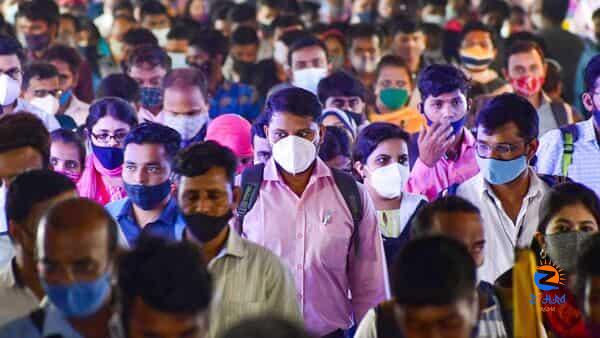
[ad_1]
A new study has revealed that effective indoor ventilation is required to prevent the spread of Covid-19 transmission. MIT researchers have recently discovered that indoor relative humidity may also affect the virus’ ability to spread. The study appeared in the Journal of the Royal Society Interface, according to the news agency ANI.
The MIT research team reported that around 40% to 60% of indoor relative humidity is associated with relatively lower rates of Covid-19 infections and deaths, while indoor conditions outside this range are associated with worse Covid-19 outcomes.
These findings are based on the team’s analysis of Covid-19 data combines with meteorological measurements from 121 countries, from January 2020 to August 2020. This study even suggests a strong connection between regional outbreaks and indoor relative humidity, ANI reported.
Connor Verheyen, the lead author and a PhD student in medical engineering and medical physics in the Harvard-MIT Program in Health Sciences and Technology said, “There’s potentially a protective effect of this intermediate indoor relative humidity.”
“Indoor ventilation is still critical,” says co-author Lydia Bourouiba, director of the MIT Fluid Dynamics of Disease Transmission Laboratory and associate professor in the departments of Civil and Environmental Engineering and Mechanical Engineering, and at the Institute for Medical Engineering and Science at MIT.
“However, we find that maintaining an indoor relative humidity in that sweet spot — of 40 to 60 percent — is associated with reduced Covid-19 cases and deaths,” said Bourouiba, as per ANI reports.
For tracking humidity, the researchers have focused on the early period of the Covid-19 pandemic when vaccines were not yet available, reasoning that vaccinated populations would obscure the influence of any other factor such as indoor humidity.
The team gathered global Covid-19 data, including case counts and reported deaths, from January 2020 to August 2020, and identified countries with at least 50 deaths, indicating at least one outbreak had occurred in those countries.
In all, they focused on 121 countries where Covid-19 outbreaks occurred. For each country, they also tracked the local Covid-19 related policies, such as isolation, quarantine, and testing measures, and their statistical association with Covid-19 outcomes, as per ANI reports.
The team used meteorological data to calculate a country’s outdoor relative humidity. After that, they estimated the average indoor relative humidity, based on outdoor relative humidity and guidelines on temperature ranges for human comfort.
They also assumed that on average, most populations have the means to heat indoor spaces to comfortable temperatures. Finally, they also collected experimental data, which they used to validate their estimation approach.
It’s still unclear how indoor relative humidity affects Covid-19 outcomes. The team’s follow-up studies suggest that pathogens may survive longer in respiratory droplets in both very dry and very humid conditions.
(With ANI inputs)
Download The Mint News App to get Daily Market Updates.
[ad_2]